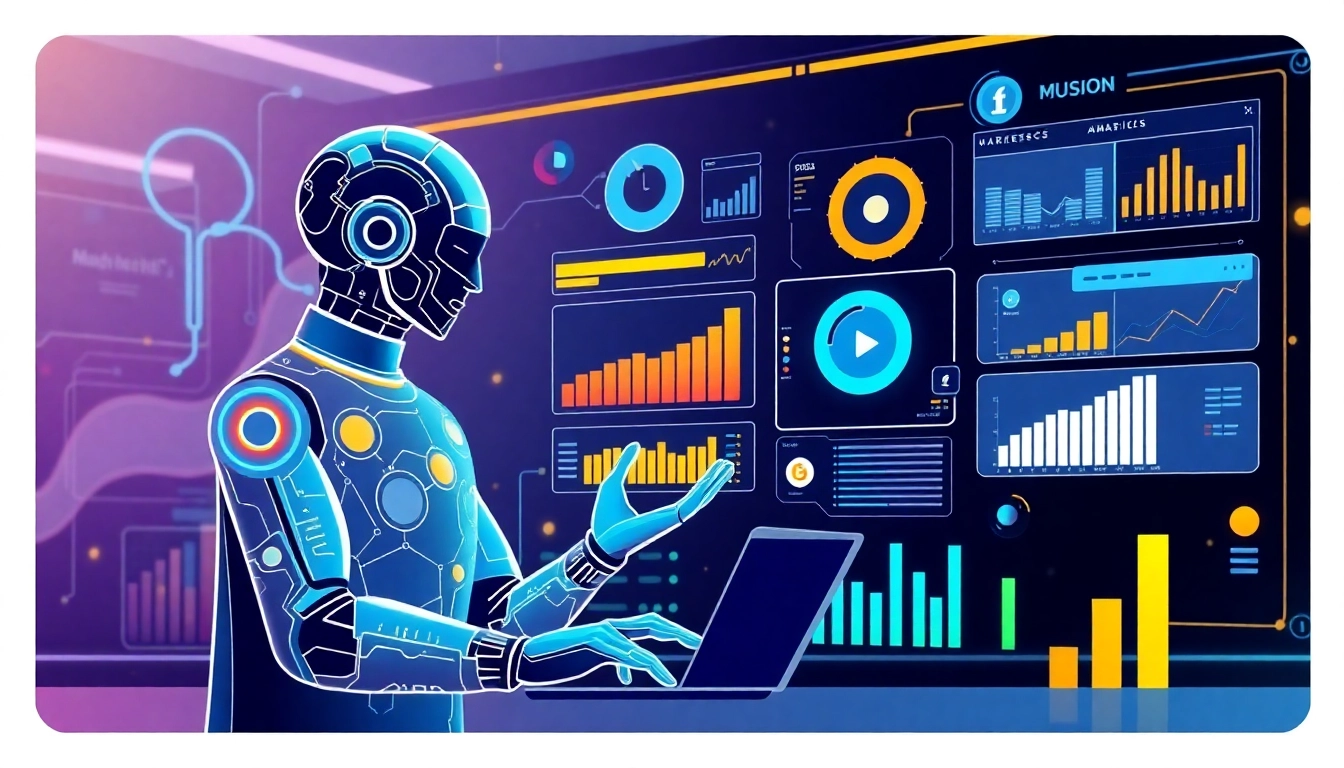Understanding AI Marketing Agents
With the advent of digital technology, businesses are witnessing an unprecedented transformation in how they approach marketing. Central to this transformation are AI marketing agents—intelligent software tools designed to automate various marketing tasks using artificial intelligence (AI). These agents streamline operations, enhance customer engagement, and optimize marketing strategies by harnessing vast amounts of data to inform decisions. In this article, we will dive deep into the world of AI marketing agents, exploring their functions, benefits, types, and integration into existing marketing strategies.
What are AI Marketing Agents?
AI marketing agents are software systems that utilize artificial intelligence to perform specific marketing-related tasks autonomously. Typically, these agents work under human oversight, ensuring that while they can operate independently, they still function within the context of broader organizational goals. Their main roles include automating repetitive tasks, analyzing consumer data, and providing insights that lead to improved marketing strategies.
How AI Marketing Agents Operate
At the core of AI marketing agents is machine learning, a subset of artificial intelligence that enables these tools to learn from data. They operate by processing large datasets to identify patterns and trends, which inform their actions. For example, a marketing agent can analyze user behavior on a website to optimize the customer journey, suggesting changes to web content or targeting specific demographics based on their engagement patterns. The operational mechanics of these agents empower businesses to conduct more experiments, as they can simulate various campaign strategies and measure anticipated outcomes.
Benefits of Using AI Marketing Agents
Implementing AI marketing agents provides several competitive advantages that today’s businesses cannot afford to overlook:
- Increased Efficiency: By automating routine tasks such as email campaigns and lead scoring, businesses can save significant time and resources.
- Data-Driven Decision-Making: AI agents analyze data more effectively than most human analysts, providing insights that lead to informed decision-making.
- Enhanced Customer Experience: These agents can create personalized marketing strategies, delivering targeted content to customers based on their preferences and behaviors.
- Scalability: AI marketing agents can handle vast amounts of data, allowing companies to scale their marketing efforts without proportionately increasing their workforce.
Types of AI Marketing Agents
The landscape of AI marketing agents is diverse, encompassing various types that serve distinct functions beyond mere automation. Here are the key categories:
Task Automation Agents
Task automation agents focus on simplifying repetitive marketing chores. These agents handle activities such as scheduling posts on social media, managing emails, and gathering data from multiple platforms. By automating these tasks, businesses can free up valuable employee time, allowing teams to focus on strategy and creativity.
Data Analysis and Reporting Agents
These agents delve into the analysis of big data. They can scrutinize customer data to identify trends, evaluate campaign performance, and generate reports that guide strategic decisions. For example, a data analysis agent can determine which marketing channels yield the highest ROI, enabling better allocation of resources.
Personalization and Customer Interaction Agents
Focus on enhancing customer engagement by customizing a brand’s interactions with individual consumers. These agents employ algorithms to tailor website content and product recommendations, as well as manage live chat support, providing immediate assistance to users based on their inquiries or behaviors.
Implementing AI Marketing Agents in Your Strategy
Adopting AI marketing agents requires a thoughtful approach to maximize their benefits. Here’s how to effectively integrate them into your marketing strategy:
Identifying Your Marketing Needs
Before selecting an AI marketing agent, assess your current marketing challenges. Are you struggling with data overload? Do you need to improve customer engagement? Clearly defining your needs will help in choosing the right AI tools tailored to your business objectives.
Choosing the Right AI Marketing Agent
The market is replete with various AI marketing agents, each tailored to specific functions. Consider your marketing goals and the scale of operations when selecting the right agent. Factors such as usability, integration capabilities, and customer support are essential in your choosing process. Foster collaborations with vendors who can provide thorough training and support.
Integrating AI with Existing Marketing Tools
Successful integration requires ensuring that the AI tool can seamlessly work alongside your existing marketing applications. This may involve using APIs or connectors to link your CRM, email marketing, and social media tools to create a unified marketing ecosystem where data flows freely.
Challenges and Solutions
Despite their myriad benefits, businesses can encounter challenges when implementing AI marketing agents. Here are some common hurdles and methods to address them:
Overcoming Resistance to AI
Change can be daunting. Employees may fear job displacement or feel overwhelmed by new technology. It is vital to foster a culture of learning and adaptability. Training sessions and workshops can equip staff with the necessary skills to utilize AI effectively. Highlighting AI’s role as an assistant rather than a replacement will ease resistance.
Data Privacy and Security Concerns
Integrating AI into marketing strategies often involves leveraging sensitive customer data. Ensuring data privacy is paramount. Businesses must comply with GDPR and other regulations, adopting robust measures to protect consumer data. Transparency about data usage can help build customer trust.
Measuring Success with AI Marketing Agents
Measurement can be challenging when employing AI agents. Establish clear KPIs (key performance indicators) aligned with business objectives for assessing AI effectiveness. Regularly evaluate performance against these metrics and adjust strategies as needed to optimize outcomes.
The Future of Marketing with AI Agents
The integration of AI marketing agents is poised to revolutionize how businesses engage with their customers and optimize their marketing strategies. Here’s what the future holds:
Emerging Trends in AI Marketing
As technology advances, we can expect several trends to shape the future of AI marketing. These include greater focus on predictive analytics, enhanced personalization powered by deep learning, and an increased reliance on chatbots and conversational agents for customer service.
Case Studies of Successful AI Implementation
Several leading companies have successfully deployed AI marketing agents. For instance, Coca-Cola uses AI to analyze customer feedback, allowing them to rapidly adapt their marketing strategies based on real-time consumer sentiment. Similarly, Nike employs AI to create personalized shopping experiences through targeted recommendations on their online store. These examples illustrate how effective AI can lead to substantial improvements in engagement and sales.
Preparing for the Evolving Landscape of Marketing
Marketers must stay ahead by continuously updating their skills and understanding the capabilities of emerging AI technologies. Regular training and adaptation to new tools are essential for successful implementation. Future-proofing marketing strategies means being prepared to pivot rapidly as technology evolves and consumer behavior changes.



